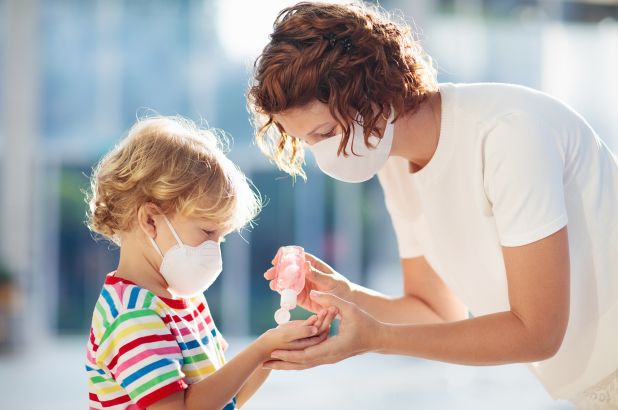COVID-19 will be with us for the foreseeable future — and with it a whole new set of challenges for families who are trying to juggle virtual learning, work from home, and job change.
All of this can be very stressful for families. Many parents struggle with how to connect and talk to kids about what is going on when they are trying to make sense of it all themselves.
Stephanie Egbers, a licensed professional counselor at Broadway Medical Clinic, offers these tips for helping kids manage their very normal anxiety:
- Before supporting our kids, we have to first support ourselves.
It’s the airplane oxygen mask scenario playing out in front of us right now: In order to best take care of our loved ones, we have to first supply oxygen to ourselves.
Dr. Laura Markham reminds us that oftentimes our outward stress is a function of the fear we experience: “If we let fear have its way with us, it steals our joy, our resourcefulness, our ability to be fully present. We aren’t the parents we want to be.”
Avoiding our experience of fear can also increase our stress and anxiety. As parents it is important that we notice our own stress, anxiety, and fear. By noticing and naming our experience, we are able to consciously determine a response and increase our own sense of power and autonomy in the moment rather than reacting from a fight or flight stance.
(https://www.ahaparenting.com/blog/simple-tools-ease-stress-worry-anxiety-coronavirus-quarantine)
Once we acknowledge our own experience of stress, anxiety, and fear, we can better support our children in processing and understanding their feelings.
- Normalizing our children’s feelings of worry, fear, sadness, disappointment, and even anger goes a long way in helping reduce our children’s discomfort with these challenging emotions.
Rather than saying “Don’t feel scared” to our children, try “It looks like you’re feeling scared; that makes sense.” Assisting our children in labeling their feelings supports them in gaining understanding of their emotions rather than feeling swallowed by them.
Validating our children’s emotions and being with them in the moments of discomfort helps them to feel supported and seen and builds a sense of confidence around their ability to both express and manage big feelings.
- Once we have named the emotion, we can get creative in how to take care of the feeling together.
For younger children consider having them draw their emotion as if it is separate from themselves. Once we have a picture of what a feeling looks like we can ask the feeling what it needs to feel better.
Offering reassurance that it’s okay to have a big feeling and then identifying what the feeling needs allows our children to practice both self-compassion and self-care.
Broadway Medical Clinic is here to support you and your family as you navigate these uncertain times. Give us a call to schedule your well-child check-up or to schedule a virtual visit with our behavioral health team to talk about how to manage stress and anxiety.

